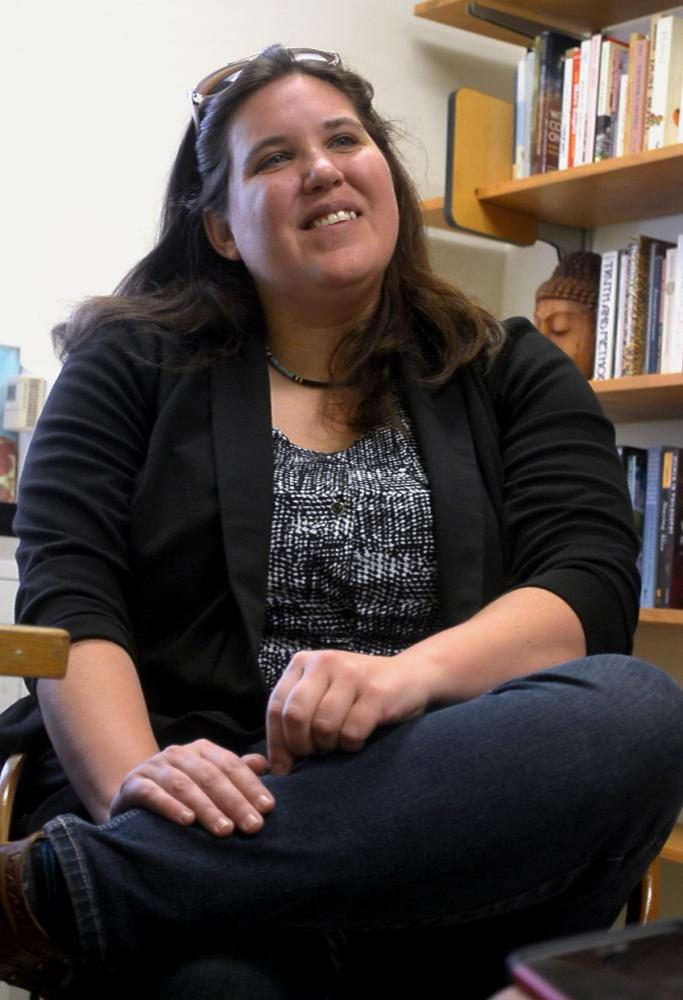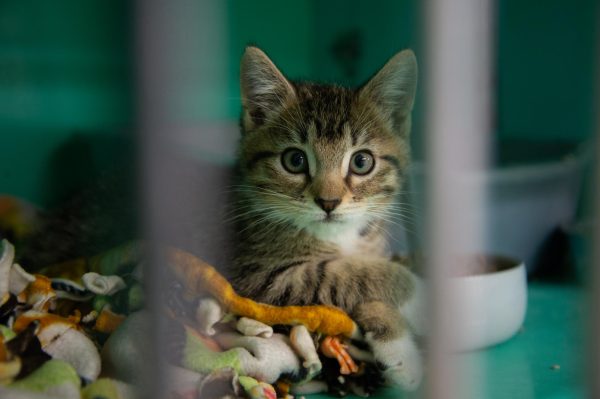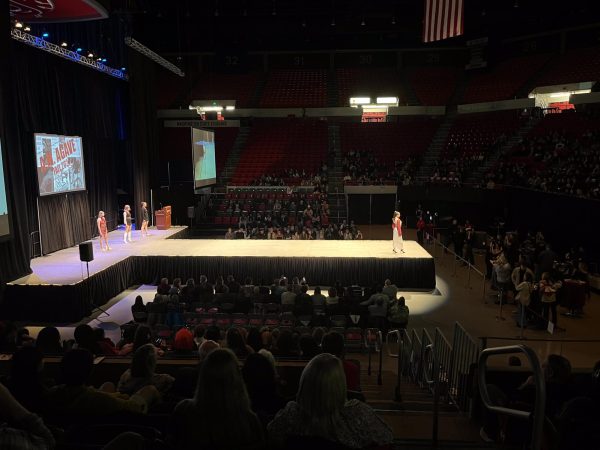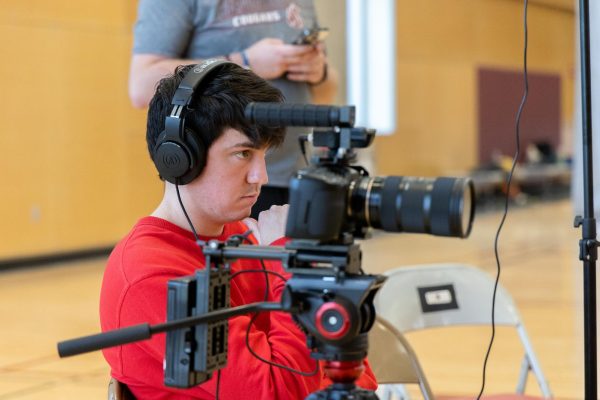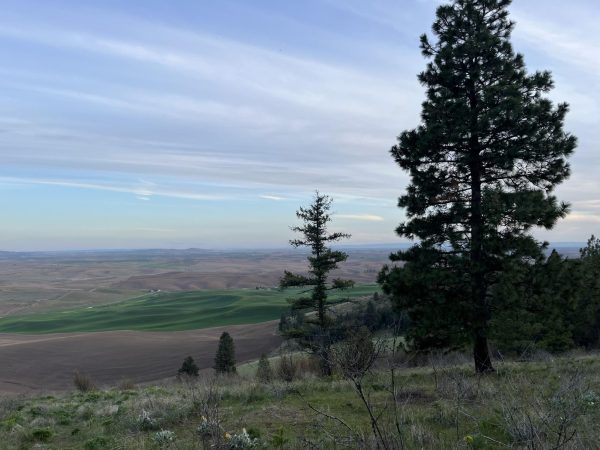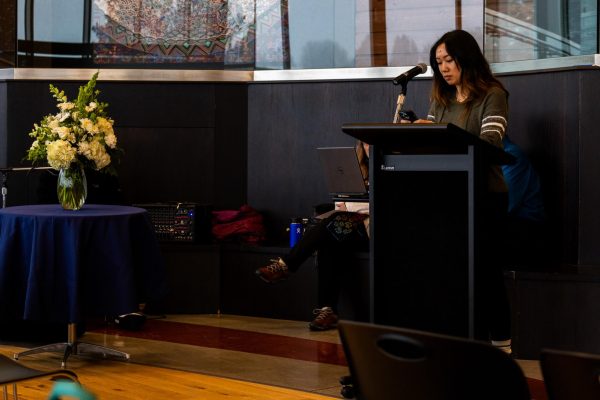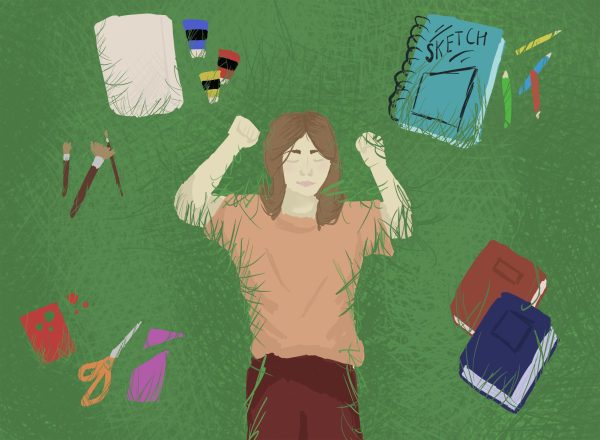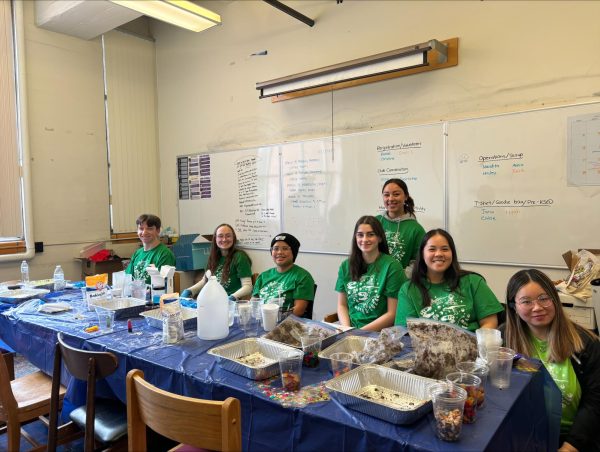Conscious eating on the Palouse
When more people shop locally, they can help lower prices
KEISHA BROKAW | The Daily Evergreen
Assistant professor Samantha Noll discusses ethics in food production in her Johnson Tower office Friday.
September 6, 2017
When students line up at Subway for a quick bite to eat and watch as the toppings are piled on, some are starting to wonder where their food is coming from and how it got there.
Samantha Noll, assistant professor in the School of Politics, Philosophy and Public Affairs, describes conscious consumerism as being aware of where products are coming from, how they are being grown, processed and transported, as well as the larger social impacts of that process.
For example, tomatoes. People may not think anything of getting them on a sandwich, but there are environmental impacts of growing tomatoes in Florida.
“[If you look at] the labor issues associated with tomato growth, and the push for 5 cents more per bushel of tomatoes,” Noll said, “then you are more conscious about all of the social and ethical issues intertwined with simply asking for tomatoes on your sandwich.”
In the Pullman-Moscow area, with both big box store choices and smaller producers, students have a unique opportunity to choose where they want to buy their food, Noll said.
Between Walmart, Safeway, WinCo, the Moscow Food Co-Op and the two weekly farmers markets, college students are more empowered than ever to vote with their dollar, Noll said.
“[The Palouse] produces the majority of the legumes and peas that are being eaten in the United States,” Noll said. “Recognizing the work the farmers are doing here and the local products that are available to you so that you can in turn support your local farmers is important.”
There are ways to become more involved in the problems food ethics presents, Noll said. For example, students can become involved in the organic farm or even grow their own food.
“Growing something you love to eat and seeing that process from seed to table,” Noll said, “will help you better understand everything that goes into food and all the trials and tribulations.”
Even with just a basil plant, she said, people can make their own pesto and use the herb for many other dishes.
“The mindfulness of raising your own food or knowing how your food is raised helps you become a more aware consumer,” Noll said.
Max Newland, education and events coordinator at the Moscow Food Co-op, said another option is to shop at the co-op when possible.
They offer a discount for students who are owners. A membership to the co-op is like owning a share in the business. Students who are owners receive 10 percent off their entire purchase every Friday with valid student ID, Newland said.
“Voting with your wallet can only do so much, and that’s why it is important for as many people as possible to spend in a way that can help benefit local businesses,” Newland said. “The more that people shop at a local outlet, the more prices will be driven down.”
Students should also pay attention to labeling. Organic automatically means non-GMO, Noll said. She said certain products, like milk are better to buy organic because non-organic milk is generally more exposed to chemicals.
In the end, Newland said, it’s important to remember that the decision to buy sustainably or not isn’t a cause for shame. He said a good thing about food ethics is people make these decisions at least three times a day, making it easier to practice.
“You might be working full time, with a full college load, and will not be able to make your own pesto, and that is OK,” Newland said. “Your food choices evolve and change with you where you are in your life, as long as you are mindful and thinking about what is important to you. You are still on that journey.”


